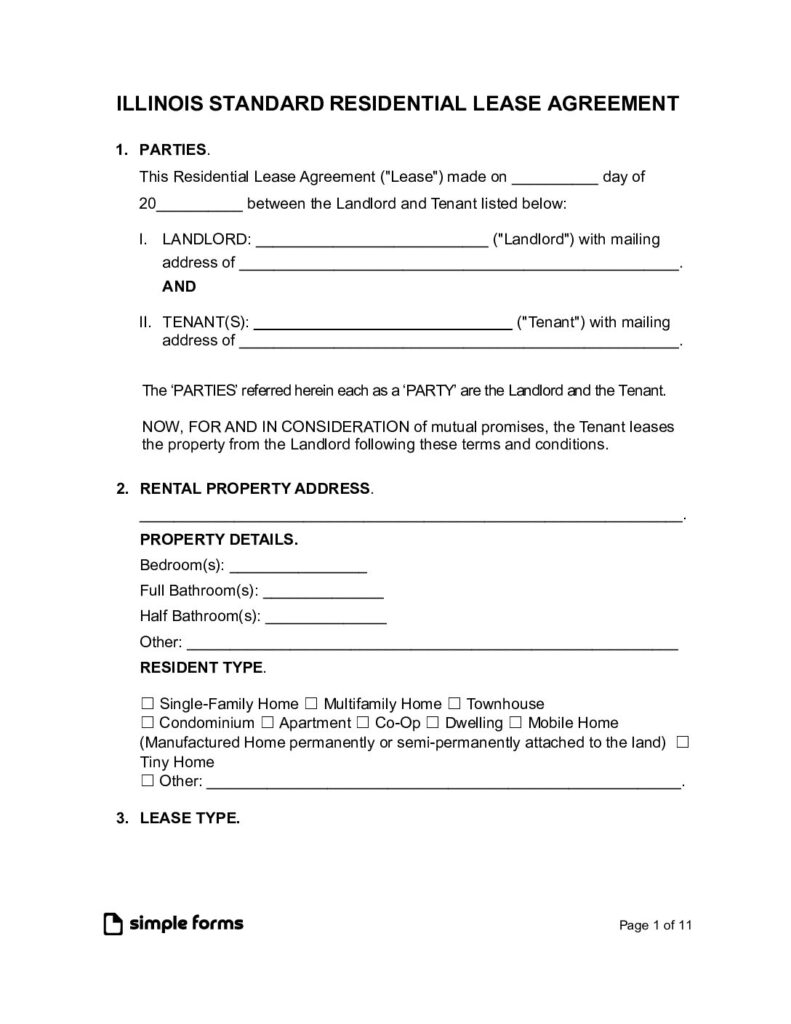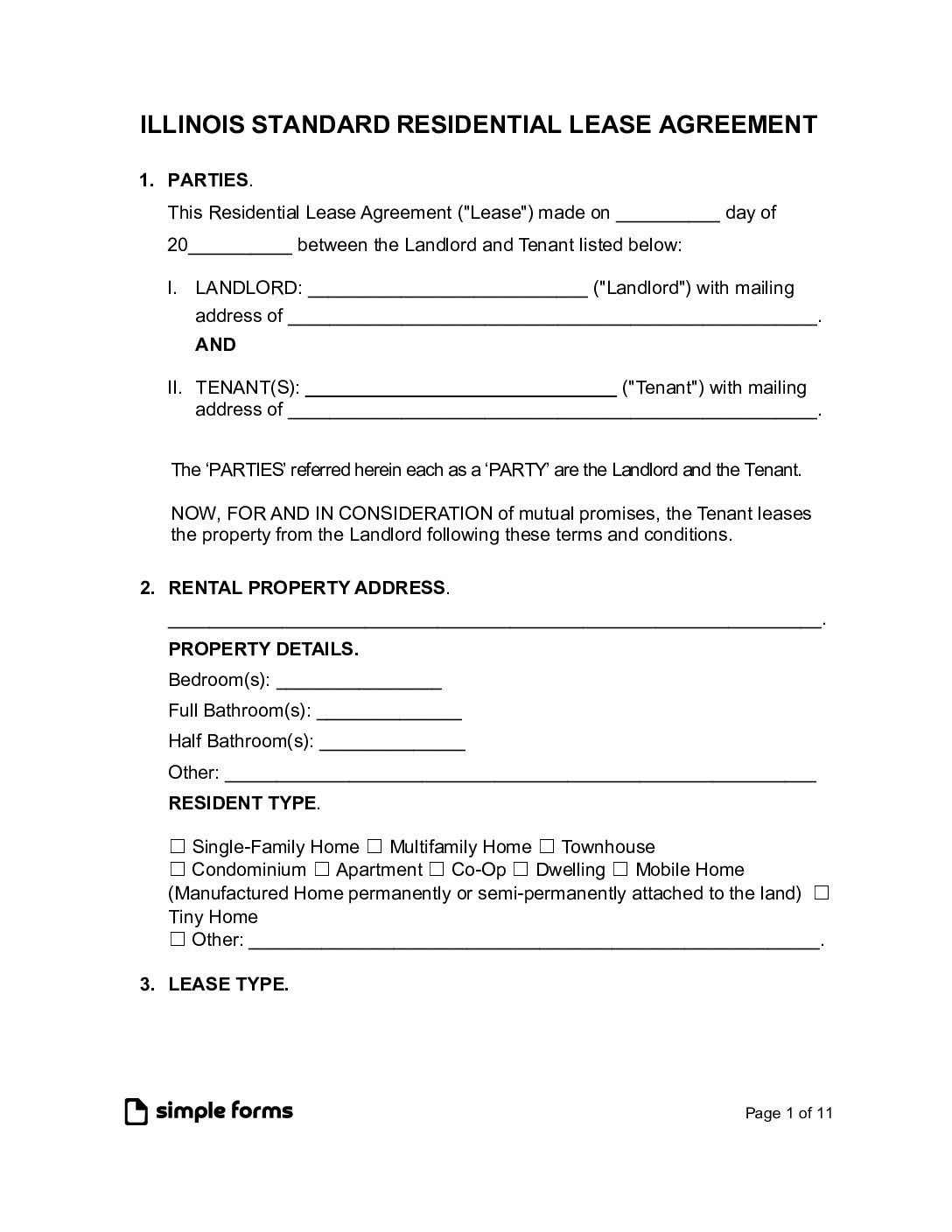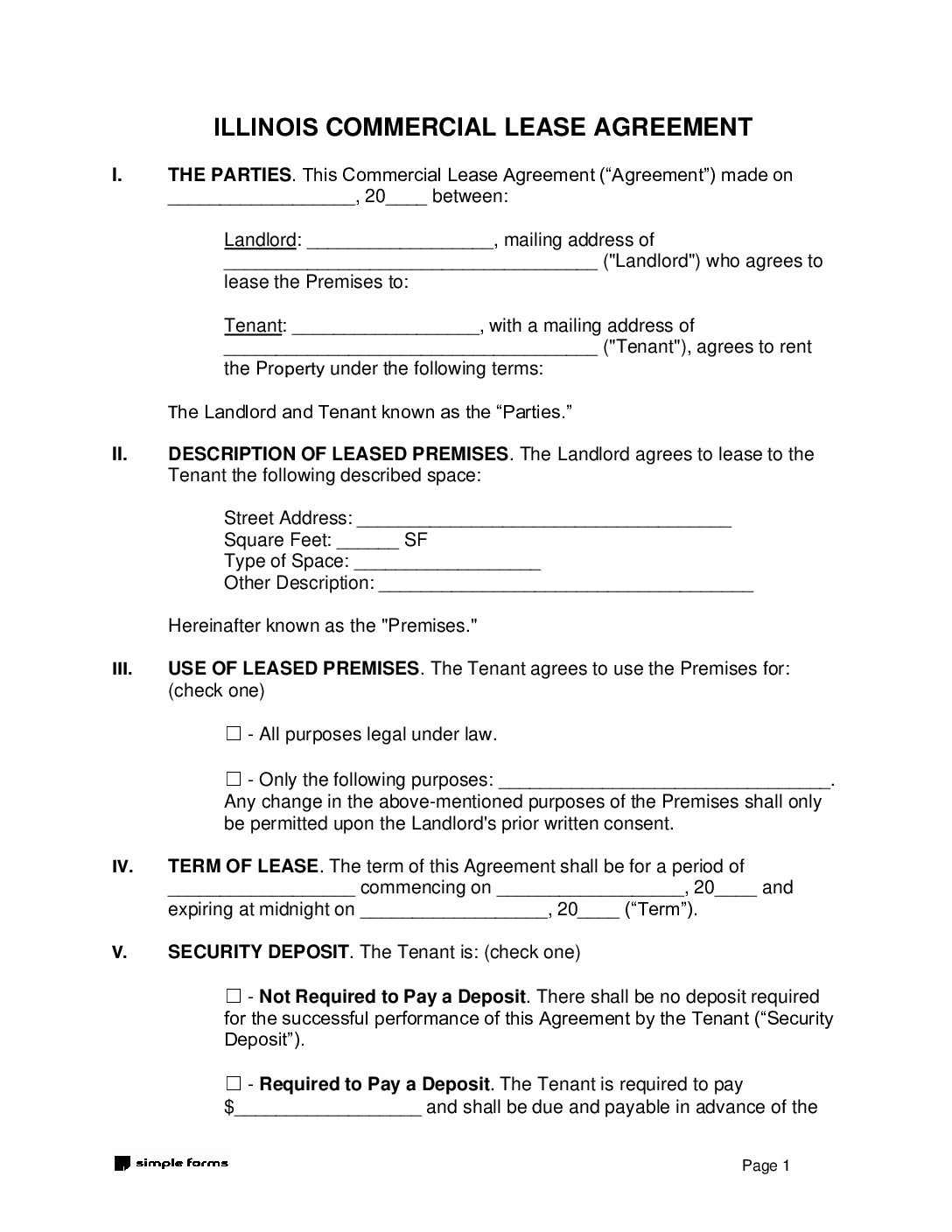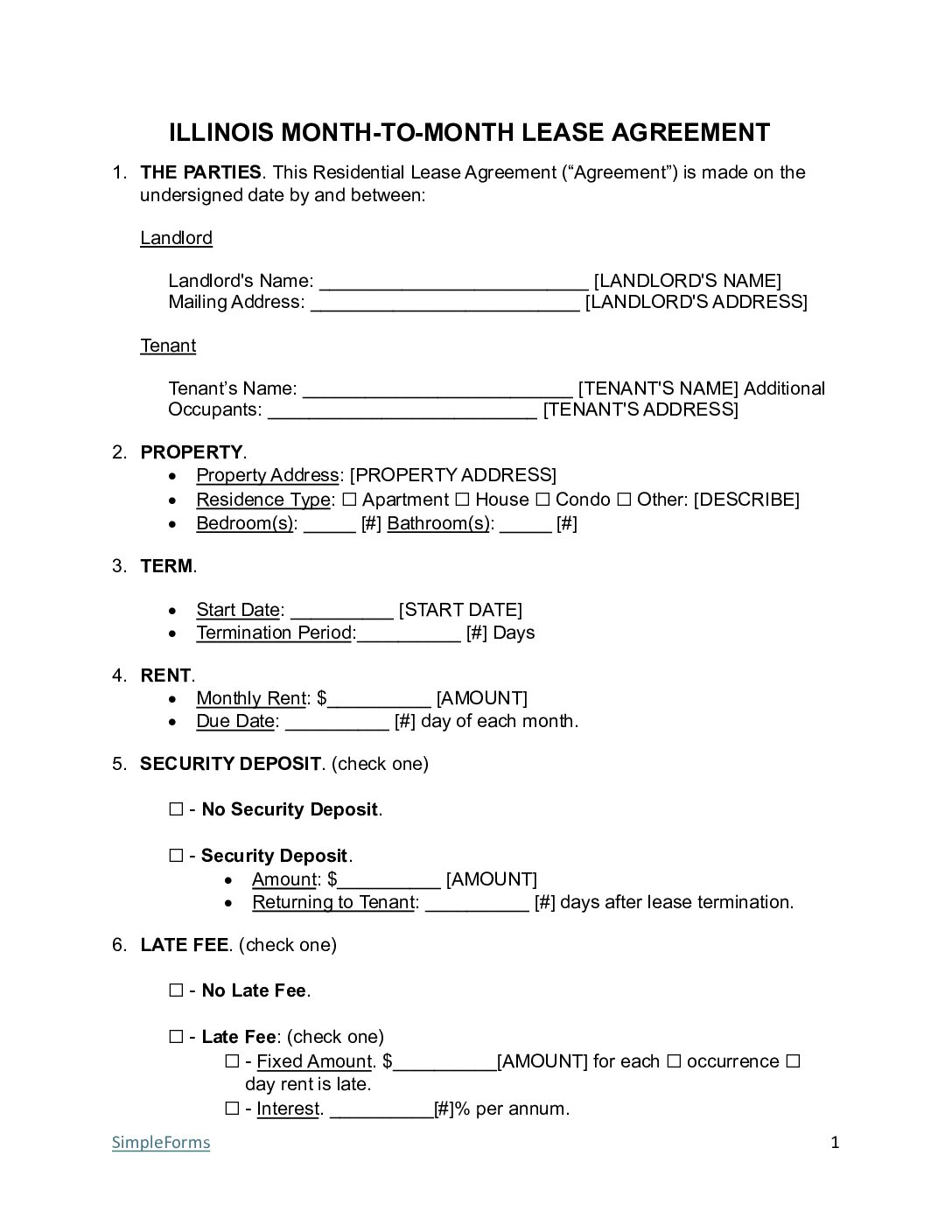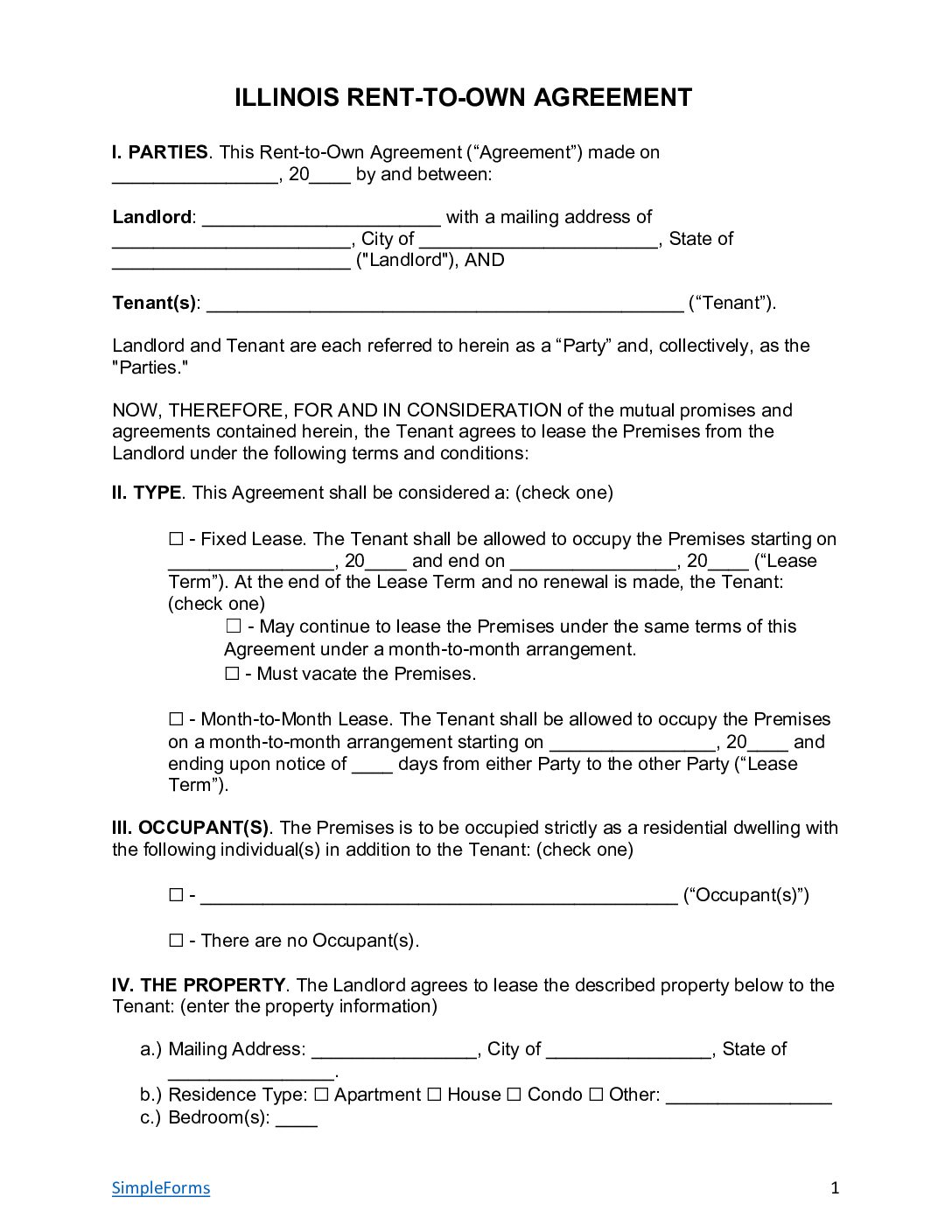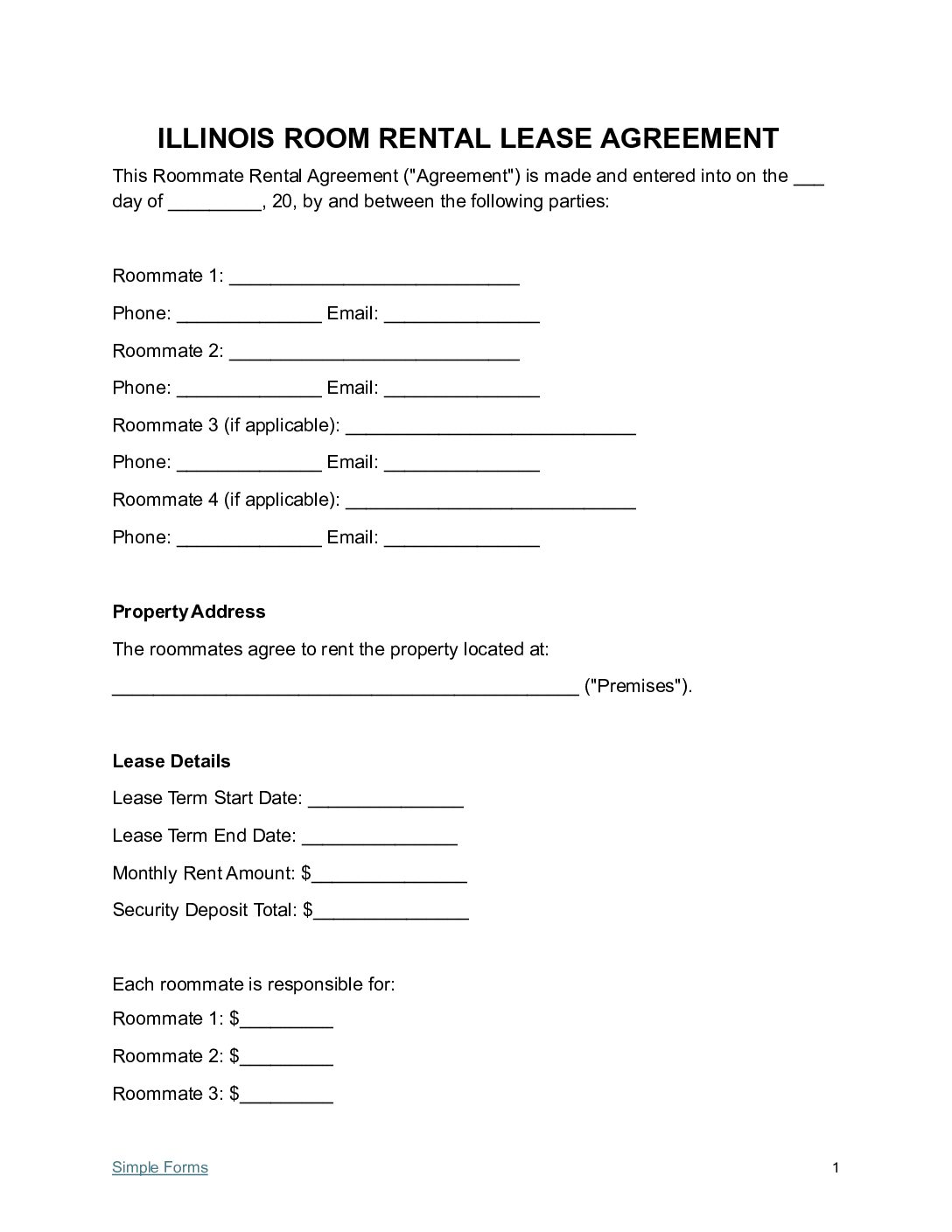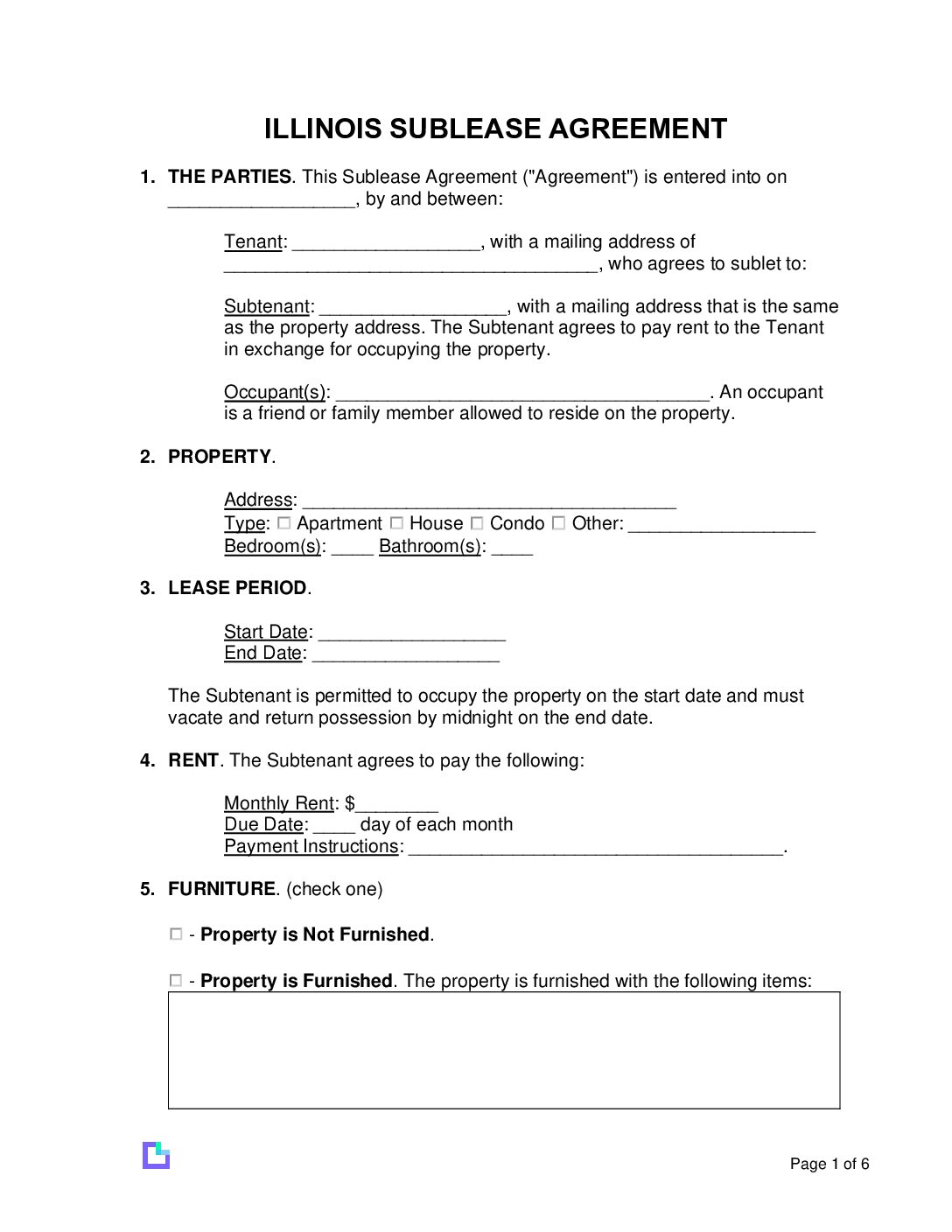By Type (7)
Chicago Residential Lease Agreement
Download: PDF | Word (.docx)
Download: PDF | Word (.docx)
Download: PDF | Word (.docx)
Download: PDF | Word (.docx)
Download: PDF | Word (.docx)
Download: PDF | Word (.docx)
What does the Illinois Rental Lease Agreement Template cover?
This agreement form includes an in-depth summary of the following state laws:
- Security Deposit Law
- Lease Termination
- Landlord’s Access to the Property
- Rent Due Date plus Late Fees
- Eviction Procedures
- Property Maintenance
- Tenant Rights
- Rent Control
- Required Disclosure Forms
Security Deposit Laws
Summary (§ 765 ILCS 705/1.02): In Illinois, landlords must return security deposits (minus deductions).
- 30 Days – Timeframe for landlords must return security deposits within 30 days after a tenant vacates the rental unit.
- Itemized List – All deductions must be itemized and provided to the tenant along with the rest of the deposit amount (if any) within 45 days.
- Maximum Amount – No maximum amount mandated. Should be written in the lease agreement.
Lease Termination
Summary (§ 735 ILCS 5): Both landlords and tenants can end a lease under these conditions:
- Landlord’s Ability to Terminate
- 3-day notice if rent isn’t paid.
- 3-day notice to fix a lease violation.
- Tenant’s Ability to Terminate
- Tenants can end a lease due to domestic violence with written proof.
- 30 days’ notice is needed to end a month-to-month lease.
Landlord’s Access to Property
Due Dates / Late Fees
Eviction Procedures
Property Maintenance
Summary: Landlords have to keep rental properties safe and make repairs when tenants let them know something’s wrong.
- If they don’t fix things in a reasonable time, tenants can end the lease or seek damages.
- If tenants do any repairs, the amount can’t be deducted costs from the rent.
Tenant’s Rights
Summary: Tenants in Illinois have rights, including:
- Right to Privacy – Tenants have the right to privacy.
- Right to a Habitable Home – Tenants can expect a clean, safe place to live.
- Protection from Retaliation – Landlords can’t retaliate against tenants for standing up for their rights, like reporting issues or code violations.
Rent Control Laws
Summary (§ HB3874):
- No Local Rent Control – There aren’t any local rent control rules in Illinois, so landlords can set rent based on market rates.
Required Disclosure Forms (5)
Summary (765 ILCS 730/3):
- Lead Based Paint Disclosure Form – Must give to tenants this disclosure about the potential presence of lead-based paint, which can be a health hazard.
- Concession Granted (conditional) – This disclosure form is about the agreements made and outlines the conditions.
- Radon Disclosure Form – Radon is a natural gas that can seep into homes and pose health risks. This form outlines the radon levels and whether mitigation has been performed. Landlord must provide a radon disclosure if the property has been tested.
- Smoke and Carbon Monoxide Detectors – In Illinois, having working smoke and carbon monoxide detectors installed is a must for residential properties. This disclosure confirms that these detectors are installed and working.
- Shared Meter Utility Disclosure – If a property has shared utilities, like water or electricity, this form explains how costs are divided.
